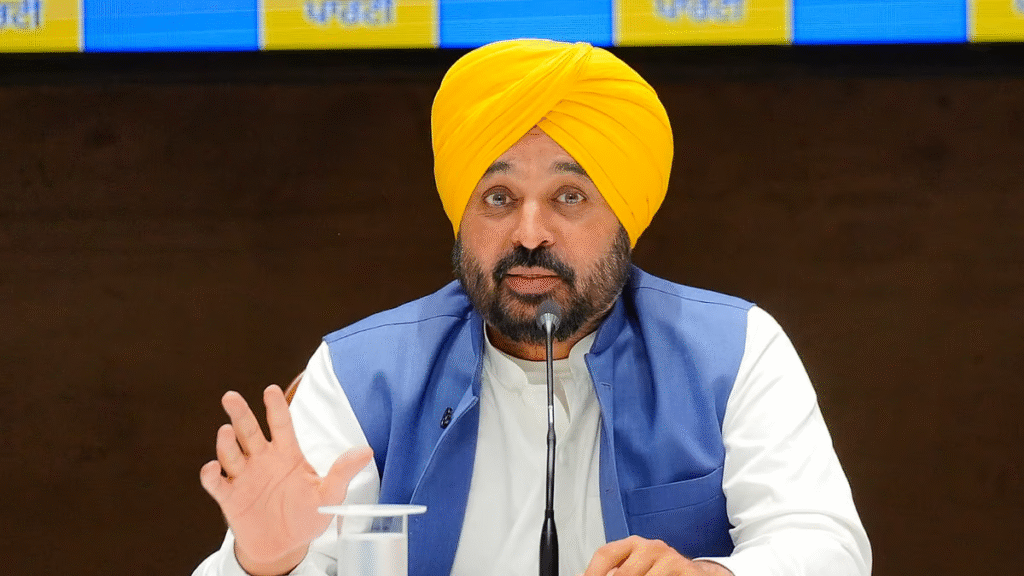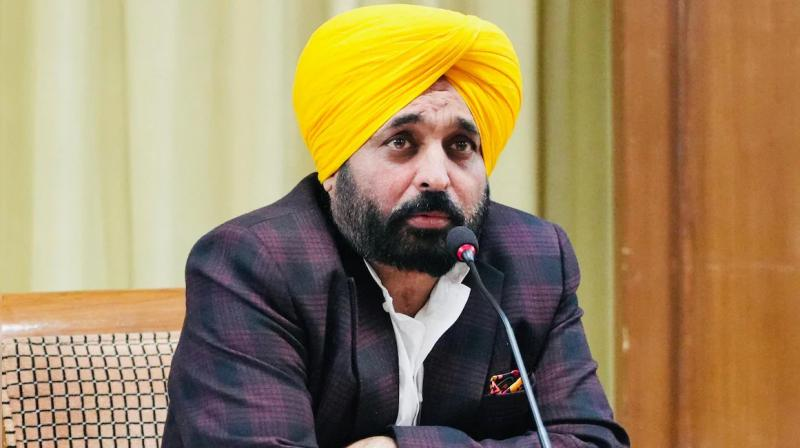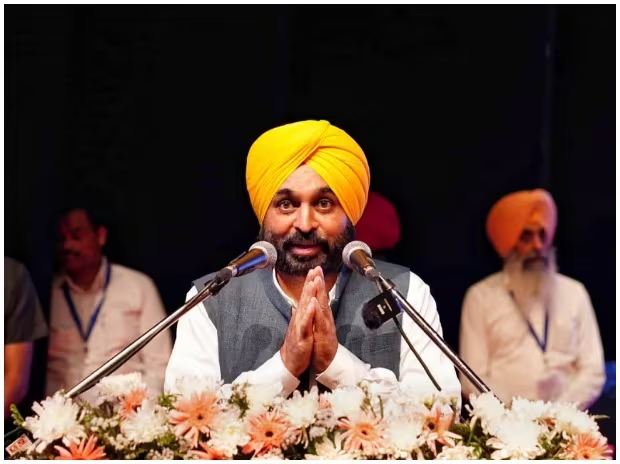
Punjab’s real estate sector has taken a giant leap into the future with the launch of ‘Easy Registry,’ a pioneering initiative by the state government under Chief Minister Bhagwant Mann. This revolutionary move aims to fundamentally reform how property registration — a vital yet historically tedious process — is conducted in Punjab. Designed to be fast, transparent, and user-friendly, the new system promises to cut down delays, eradicate corruption, and bring unparalleled convenience to property buyers, sellers, investors, and legal professionals alike.
The unveiling of ‘Easy Registry’ marks a turning point in Punjab’s governance, reflecting a broader push to digitize public services and create a more accountable, efficient administration. As India’s economy grows and urbanizes rapidly, streamlined property registration has become a necessity for protecting citizens’ rights and boosting investor confidence. With ‘Easy Registry,’ Punjab positions itself as a leader in this vital reform.
A Historical Struggle: Punjab’s Long Road Toward Property Registration Reform
Property registration in Punjab, much like in other Indian states, has traditionally been riddled with inefficiencies. For decades, the process involved cumbersome paperwork, frequent visits to government offices, and long waiting times that frustrated even the most patient citizens. This slow pace created numerous challenges:
Many buyers and sellers found themselves caught in red tape, facing unclear timelines and inconsistent information. The system’s opacity sometimes allowed corrupt practices to take root, discouraging honest transactions and eroding trust in public institutions. Especially in rural parts of Punjab, physical access to registration offices was a barrier, adding to the burden on the common man.
For legal experts and real estate developers, the unpredictability and delays translated into increased costs and risks. This situation made Punjab’s real estate market less attractive compared to other states where digital reforms had begun. With economic growth hinging on vibrant property markets, it became urgent for Punjab’s government to innovate.
The previous efforts to digitize property records were fragmented and lacked a unified approach, leading to confusion among users and inefficient workflows within departments. This made it difficult for Punjab to keep pace with national initiatives like the Digital India program that emphasized technology in governance.
The Vision Behind ‘Easy Registry’: Transforming Property Registration in Punjab
Against this backdrop, Chief Minister Bhagwant Mann envisioned a complete overhaul — a one-stop, integrated platform that would revolutionize property registration by blending technology with governance reforms.
During the official launch, CM Mann outlined the core objectives of the ‘Easy Registry’ initiative:
- Drastically reduce the time taken for property registration from weeks or months to just a few days.
- Ensure complete transparency by enabling real-time tracking and audit trails for every transaction.
- Empower citizens by enabling online application submission, payments, and status monitoring, minimizing physical visits.
- Strengthen accountability within government departments through automated workflows and data analytics.
- Provide secure, tamper-proof storage of land records and documents to prevent disputes and fraud.
Mann emphasized that ‘Easy Registry’ is not merely a technological upgrade but a commitment to creating a citizen-centric system that protects property rights and promotes ease of doing business. This aligns with his broader governance vision to make Punjab a role model in India for digital public services.
Inside the ‘Easy Registry’ System: How Technology Simplifies Property Registration
At the heart of ‘Easy Registry’ is a robust digital platform that connects multiple government departments involved in property transactions. The system leverages cutting-edge technologies including cloud computing, secure data encryption, and digital signatures to ensure seamless and safe processing.
Here’s how the new system works in practice:
Applicants create profiles on the portal and upload required documents digitally. These include sale deeds, identity proofs, and land records. The portal uses optical character recognition (OCR) and AI to verify document authenticity and completeness, flagging any discrepancies early on.
Once documents are uploaded, the system automatically schedules appointments for necessary physical verification or biometrics authentication, reducing wait times.
Payment of registration fees and stamp duty can be made online using secure gateways. The system integrates with Punjab’s treasury and banking systems for real-time transaction confirmation.
All applications go through a transparent workflow visible to applicants via a dashboard. They receive updates at every stage, reducing uncertainty and enabling timely follow-ups.
Government officials process applications using standardized digital forms and workflows, eliminating manual errors. The platform maintains an audit trail of every action, enhancing accountability.
Upon approval, digitally signed registration certificates and property titles are generated and securely stored on the blockchain-based ledger to prevent tampering.
This tech-driven approach marks a radical departure from the past’s manual, paper-based methods and promises higher efficiency, accuracy, and security.
Real Stories: How ‘Easy Registry’ Is Changing Lives on the Ground
For Punjab’s ordinary citizens, the impact of ‘Easy Registry’ is already palpable. Take the case of Sukhpreet Kaur, a resident of Ludhiana, who was planning to buy her first home. “Earlier, the process was overwhelming. I had to visit the registration office multiple times, wait in long queues, and keep track of documents,” she says. “With Easy Registry, I completed most steps from my phone at home. It saved me days of hassle.”
Similarly, Rajesh Sharma, a real estate developer in Amritsar, shares his experience: “We used to face uncertainty about registration timelines, which delayed project launches and payments. The new system gives clear timelines and reduces turnaround time drastically. It’s a game changer for our business.”
For rural citizens like Harjit Singh from a village near Patiala, the digital system breaks down geographical barriers. “Traveling to district offices was difficult and costly. Now I can upload documents online and get updates without leaving the village,” he explains.
These stories reflect a larger trend — Punjab’s citizens are embracing the digital era, and their confidence in property transactions is growing as a result.
Transparency as the Pillar of Reform: Combating Corruption and Building Trust

One of the biggest challenges in property registration has been combating corruption fueled by opaque systems and human intervention. ‘Easy Registry’ tackles this issue head-on.
By digitizing every step and introducing real-time tracking, the platform eliminates the ‘black box’ phenomenon. Citizens can now see where their application stands, who is responsible at each stage, and how long it should take.
The automated workflow reduces discretionary powers and human interference, cutting opportunities for bribery or favoritism. CM Bhagwant Mann has stressed the government’s zero tolerance for corruption and reiterated that this system is a crucial tool in upholding integrity.
Furthermore, the portal’s comprehensive audit logs enable authorities to monitor performance, detect anomalies, and take corrective action promptly. This institutionalizes accountability and reassures users that justice prevails.
Data security is another critical focus. Advanced encryption, multi-factor authentication, and blockchain technology safeguard personal and property data against unauthorized access or manipulation. This digital fortress reassures users wary of online fraud.
Economic Ripple Effects: Boosting Punjab’s Real Estate and Beyond
The ripple effects of ‘Easy Registry’ on Punjab’s economy are profound and multifaceted.
With streamlined property registration, the state is likely to see increased real estate transactions as buyers and investors gain confidence. This will lead to more capital inflow, higher property valuations, and accelerated development of residential and commercial projects.
Financial institutions will benefit too. Faster registration means quicker property title verification, reducing loan processing times for homebuyers and developers. Banks and NBFCs may see lower risk and higher loan volumes.
The construction sector, a significant employment generator, stands to gain from increased demand for new homes and offices. This translates to job creation and multiplier effects in allied industries like cement, steel, and labor.
Transparent land records also reduce property disputes, which have historically clogged courts and delayed projects. Quicker dispute resolution means a more stable business environment conducive to long-term investments.
By digitizing property tax payments and land revenue collections (planned as a future step), the government can enhance revenue streams, enabling more public spending on infrastructure and welfare.
In essence, ‘Easy Registry’ is not just a service reform but a catalyst for Punjab’s broader economic resurgence.
Government’s Roadmap: Beyond ‘Easy Registry’
The launch of ‘Easy Registry’ is just the beginning of a comprehensive digitization journey.
Punjab’s government is committed to integrating additional services onto the platform. These include:
- Property tax payment and assessment.
- Mutation and ownership transfer services.
- Issuance of encumbrance certificates and land records.
- Online dispute resolution mechanisms related to property.
- GIS-based land mapping and survey integration.
There are also plans to incorporate e-stamping and e-registration fully, eliminating physical stamps and paper deeds altogether.
Training and capacity building for government officials remain a priority. The state is organizing workshops and e-learning modules to ensure staff adapt efficiently to new workflows.
Citizen awareness campaigns are underway to promote digital literacy, especially in rural and marginalized communities. Helplines, mobile app versions, and regional language support will enhance accessibility.
CM Mann’s vision is to eventually create a single digital land management ecosystem that makes Punjab’s real estate sector one of the most investor-friendly in the country.
Challenges and the Path Forward
While the ‘Easy Registry’ initiative is a major breakthrough, challenges remain.
Digital divide issues mean that some citizens, especially elderly or those in remote villages, may find it difficult to use online platforms. Continued government support through help centers and outreach is essential.
Resistance from some bureaucratic quarters accustomed to old processes could slow adoption. Political will and strict enforcement will be necessary to overcome inertia.
Data privacy concerns require constant vigilance and upgrades to security protocols.
Nevertheless, with strong leadership from CM Bhagwant Mann and a motivated public, these hurdles can be overcome.
Conclusion: A Transformative Leap Toward a Digital Punjab
The launch of ‘Easy Registry’ heralds a new era in Punjab’s real estate and governance landscape. By harnessing the power of technology, transparency, and citizen-centric policies, the state is breaking free from the shackles of outdated bureaucratic systems.
For citizens, this means faster, simpler, and fairer property transactions. For the government, it means improved efficiency, reduced corruption, and increased revenue. For investors and developers, it signals a thriving market ripe with opportunity.
As Punjab leads the charge with ‘Easy Registry,’ it offers a model for other states to emulate, proving that modern governance is both possible and necessary in today’s India.
The journey toward a fully digital, transparent property registration system is underway, and its promise is clear: a prosperous, equitable Punjab where every citizen’s property rights are respected and protected.

